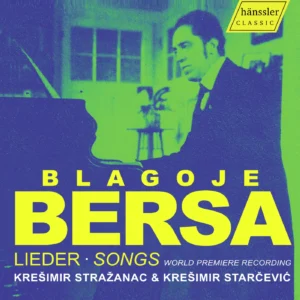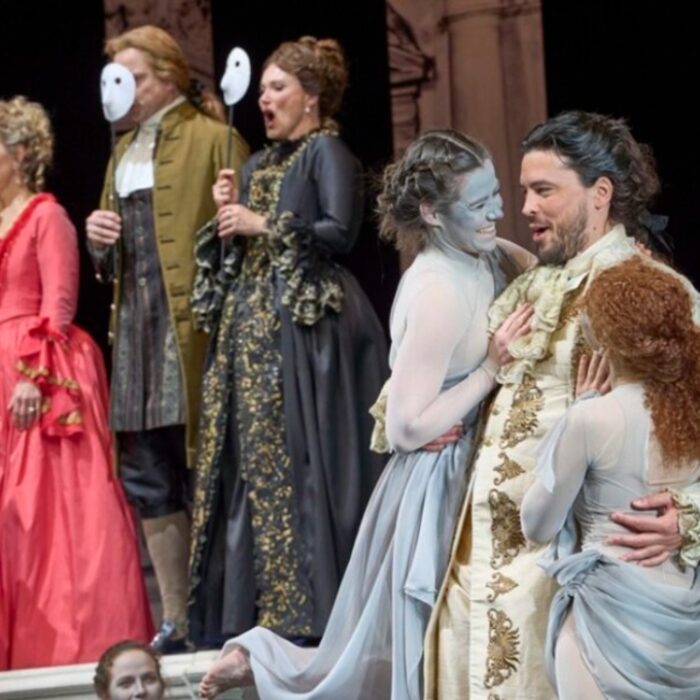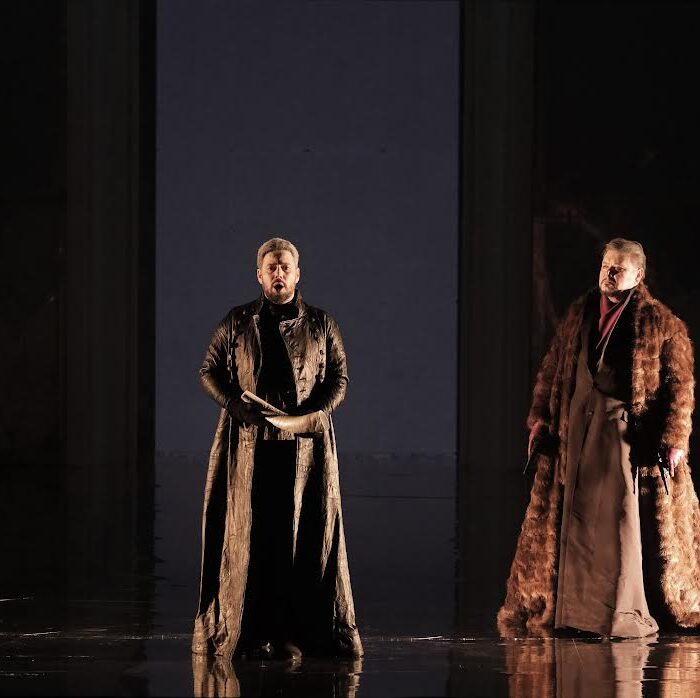
CD Review: Hänssler Classic’s ‘Blagoje Bersa: Lieder/Songs’
By Bob DieschburgUnknown, perhaps, to a vast majority of concertgoers, Blagoje Bersa (1873-1934) ranks as a seminal figure in Croatian national musicography. His compositions, including orchestral music, opera, songs, exude all the frenzied sophistication of fin-de-siècle eclecticism that Marija Kuntaric, in her monograph on Bersa, derives “from the cantabile Italian melody, then the various masters of German Romanticism (Wagner, Mahler, R. Strauss) and the lighthearted music of Vienna.” One is even tempted to discern the influence of Franz Schubert; as when, in “Edward,” the quavering bassline shifts the narrative progression towards an interior perspective of primeval fear and anxiety.
Mood painting, it appears, takes center stage, subtly blurring the lines between near-operatic dramaticism and the eloquence of the German Lied. In a cross section of world premiere recordings, Hänssler Classic aptly illustrates these hybrid compositional ideals: It offers, on two CDs, the most complete picture of Blagoje Bersa, yet.
At the Brink of Modernity
The first CD is almost entirely dedicated to poems that, in German language, have previously been set to music by composers of much greater repute than the Croatian Bersa. Wilhelm Müller’s “Einsamkeit,” for instance, is widely known as the twelfth Lied from Schubert’s “Winterreise.” Siebel’s “Meeresleuchten” already exists in a well established version by the ever so ingenious Carl Loewe–as does the cruelly dramatic “Edward,” based on a ballad by the Prussian philologist and theologian Johann Gottfried von Herder.
Yet for all their history, the treatment afforded by Bersa is quite unlike that of any of his predecessors. “Meeresleuchten,” for example, gains a psychological expanse of much bigger proportions than the tautological, but no less charming melodiousness of Carl Loewe. With Bersa, we are at the brink of modernity, the color variations and tessitura (the line uncomfortably frolics with the passaggio) closely foreshadow the proliferation of accidentals, and chromaticism in general, deployed by the Second Viennese School.
Bersa operates in a transitional period of innovations that also affect the formal makeup of the Lied genre. In “Edward,” mentioned above, our composer moves away from the descriptive nature of 19th century ballads, including Loewe’s piece of the same name, towards an operatic, if not ariose densification of musical texture and the ensuing psychologizing of its protagonists. Rhythm changes and syncopes enliven the dialogue between the parricide and his mother; the piano positively mimics an orchestral accompaniment, and were “Edward” an operatic scene, it would easily pass as a chillingly effective duet in the turn-of-the-century style.
The Duo Stražanac-Starčević
Luckily, the Hänssler Classic release is equipped with the formidably voiced Krešimir Stražanac, a Croatian bass-baritone whose considerable experience in the Baroque repertory predisposes him to the shifting, yet mellifluous lines required by Bersa’s scores.
Each poses a host of technical demands; yet the part humorous, part cynical lament of “Und als ich so lange” (based on a poem by Heinrich Heine) is particularly challenging for its feigned lightheartedness which, under the surface, still calls for rigorous discipline, and a sure sense of musical timing. The piano, played magisterially by Krešimir Starčević, conjures a slightly folkloristic backdrop of syncopated lines which Stražanac is held to echo in a sizeable display of vocal virtuosity, ranging from sharply attacked notes above the register break to a delicately sustained mezza voce.
A Forgotten Great
On the second CD, the duo Stražanac-Starčević embraces a more typically Croatian flavor, with songs based on poems by Blagoje’s brother Josip. They appear more straightforward, and less dense musically. In the romance “Jelica,” for example, the accompaniment depicts the fall of rain, each drop being a miniaturist piece to the soundscape’s overarching intimacy.
Only with “Il re di Tule,” in a translation by Giosuè Carducci, does Bersa return to a complex, and relatively unconventional ballad-form that dispenses with regular meters or, for that matter, symmetrical phrasing and melodic contour. Stražanac and his pianist thus close a cross sectional loop that, for the very first time, gives an accurate measure of a forgotten great. Bersa’s ramifications of the Lied genre are truly staggering; one could hardly ask for a more dedicated performance, and Hänssler Classic’s double CD compilation undoubtedly sets the bar for any future rediscoveries to be measured against.


